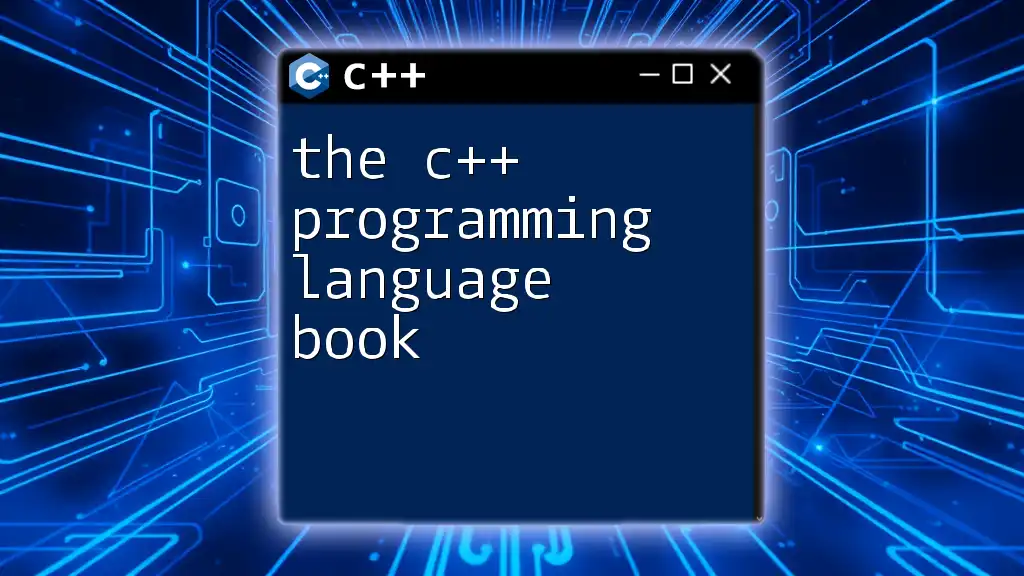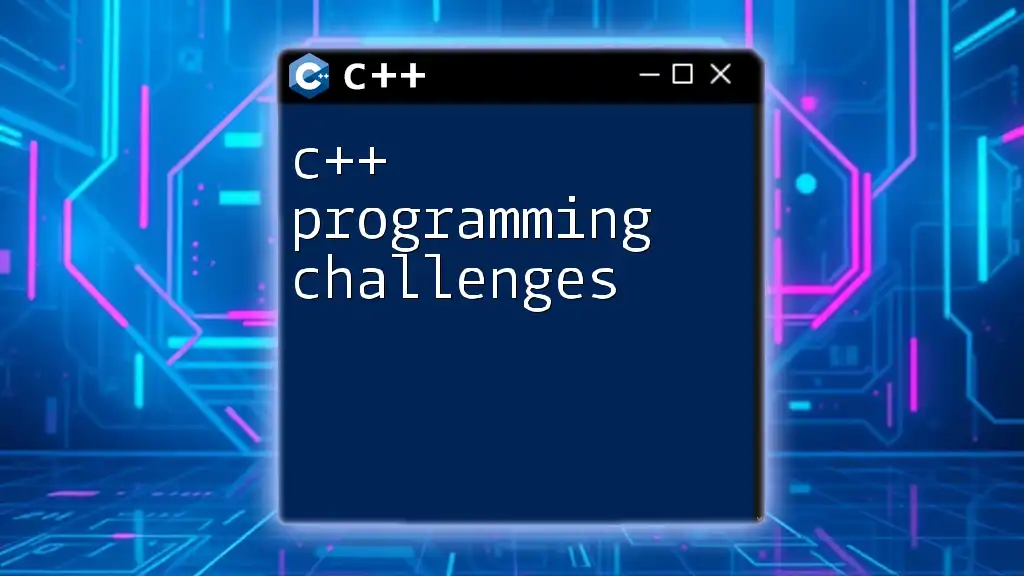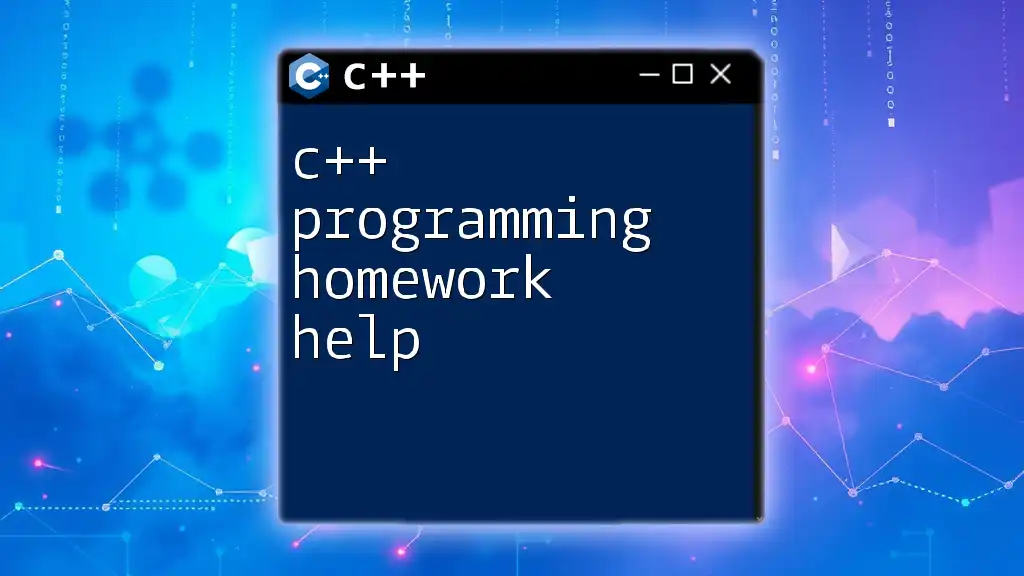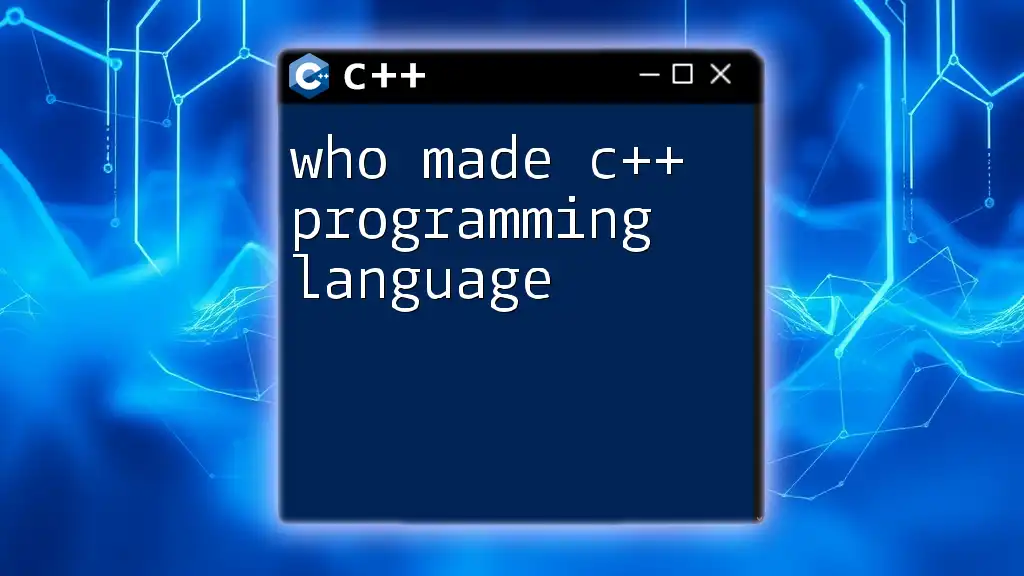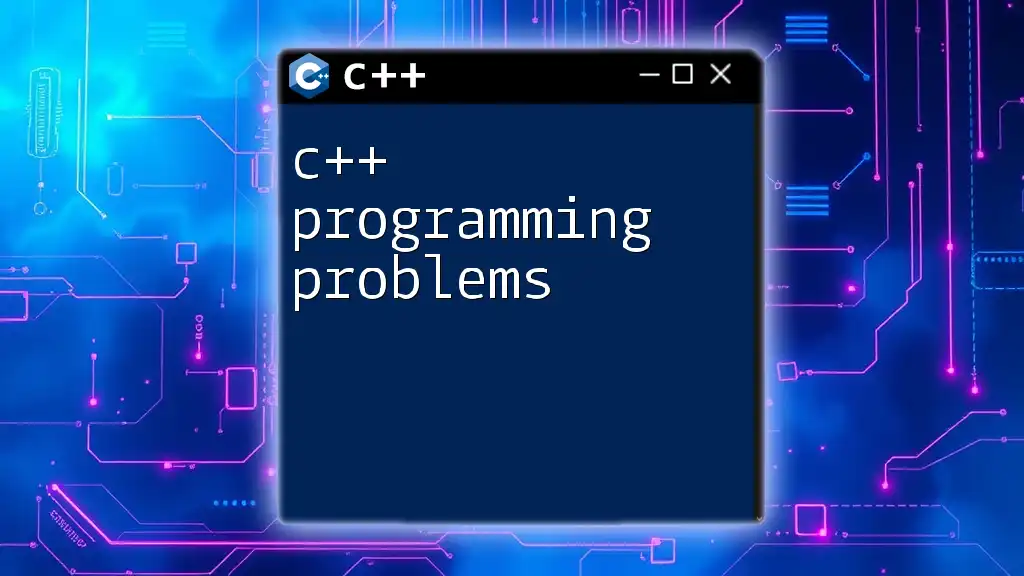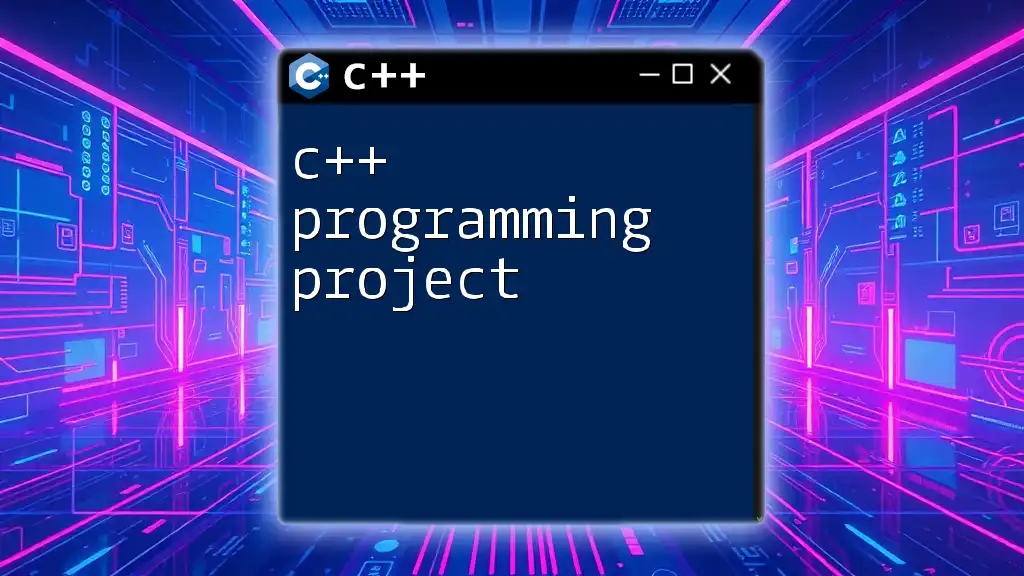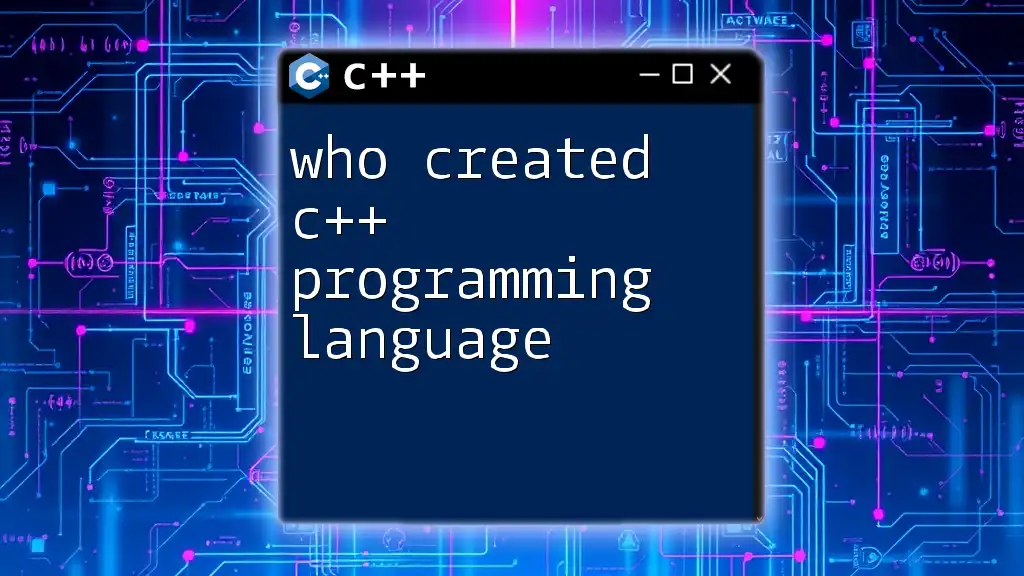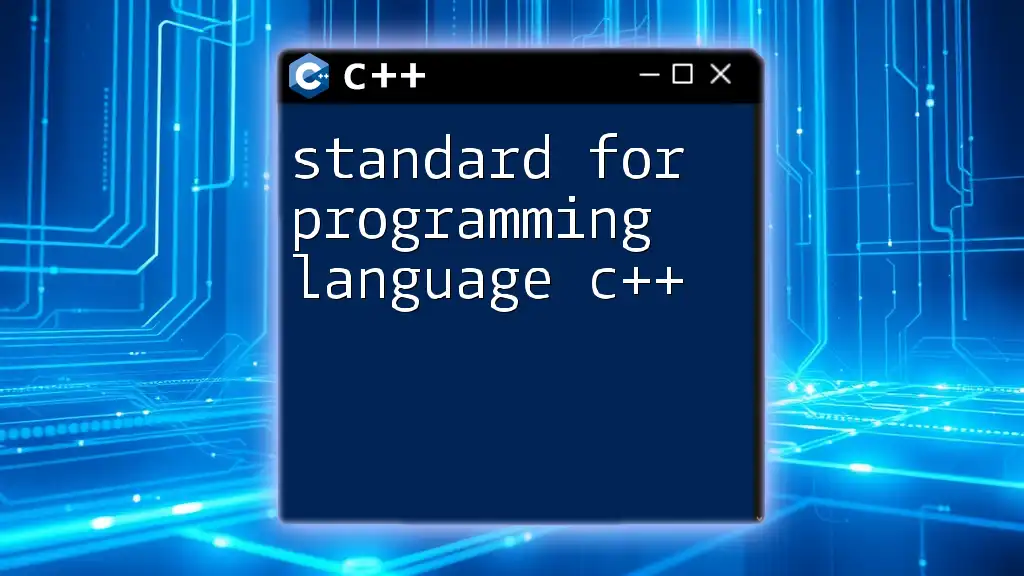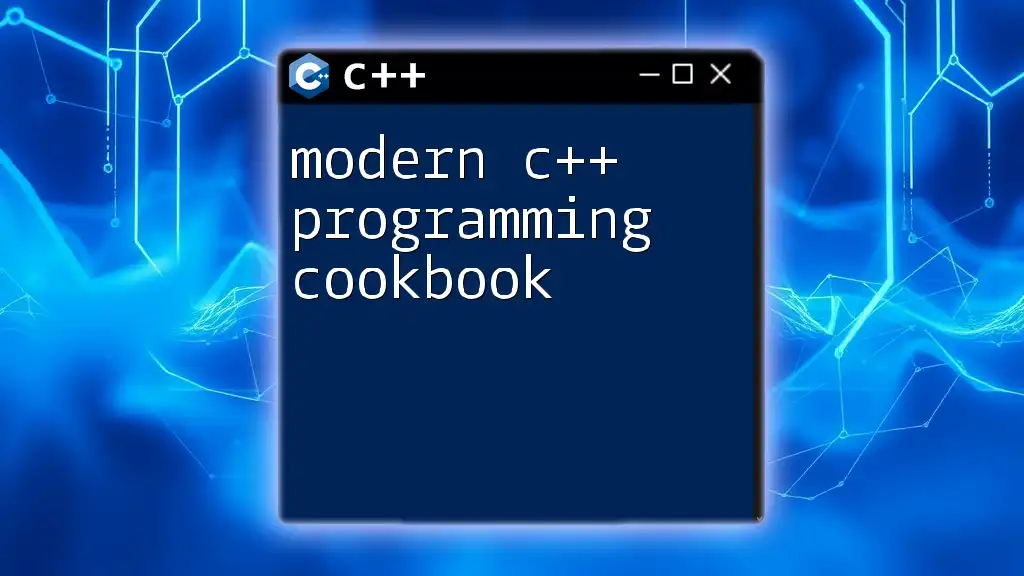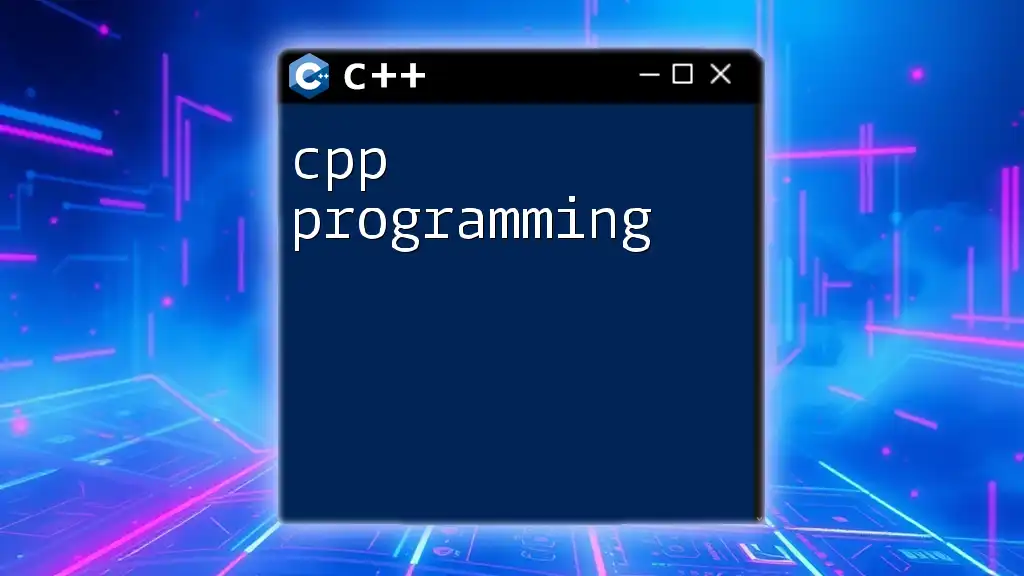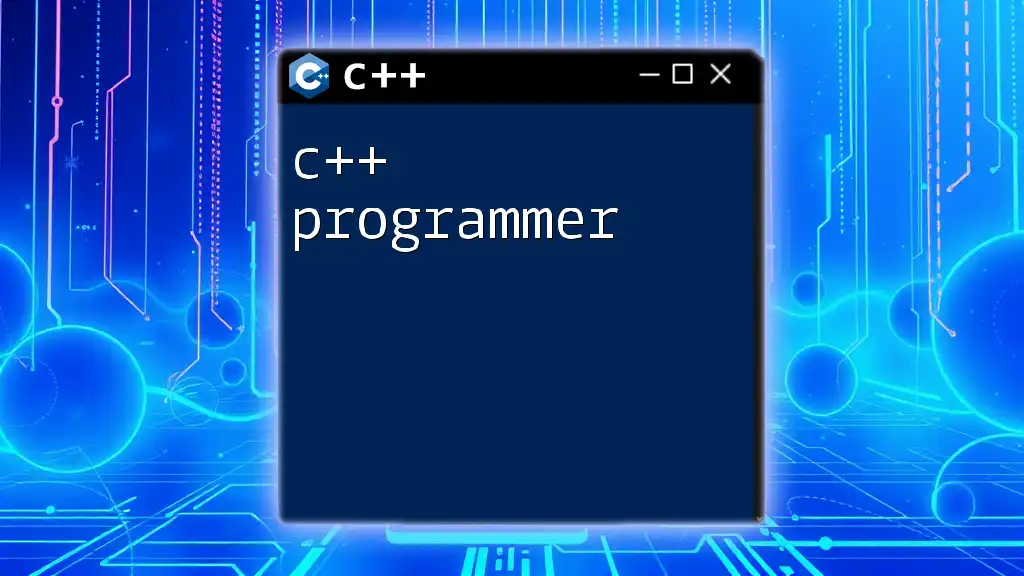The C++ programming language book serves as a comprehensive guide for both beginners and experienced developers, enhancing their understanding of C++ commands through clear explanations and practical examples.
#include <iostream>
int main() {
std::cout << "Hello, World!" << std::endl;
return 0;
}
Who is Bjarne Stroustrup?
Bjarne Stroustrup is widely recognized as one of the most influential figures in computer science, primarily for creating the C++ programming language. His vision of a language that combines high-level functionality with low-level efficiency has enabled millions of programmers to develop software across various domains—from operating systems to high-performance applications.
Stroustrup's contributions extend far beyond just the creation of C++. He has been an educator, researcher, and author, shaping the study and practice of programming. Understanding his background helps contextualize the depth and breadth of The C++ Programming Language Book, which reflects his extensive knowledge and experience.
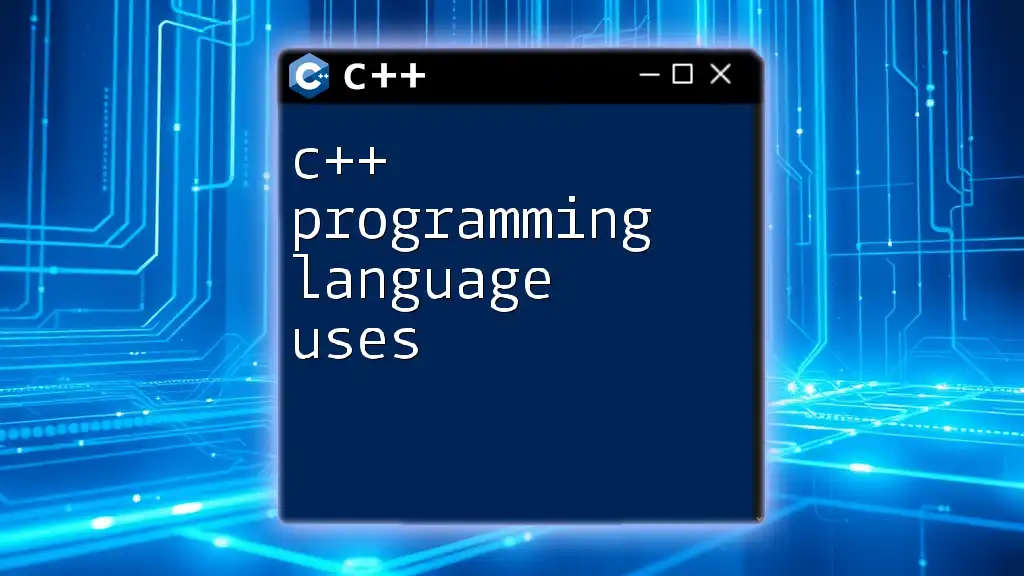
Overview of "The C++ Programming Language"
Published initially in 1985, The C++ Programming Language has evolved significantly over the years. The book serves as both an authoritative reference and a comprehensive guide to mastering the intricacies of C++. Each edition has reflected the changes and enhancements made to the language, ensuring it remains relevant in an ever-changing technological landscape.
The structure of the book is meticulously crafted to guide readers from basic concepts through to advanced features. This makes it suitable for beginners eager to learn C++ as well as seasoned developers looking to deepen their understanding.
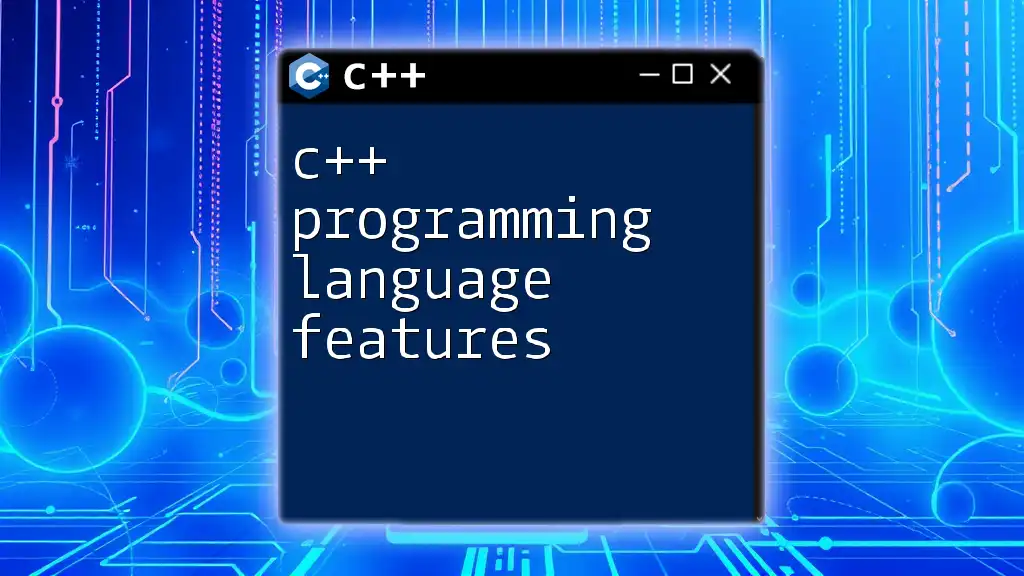
Key Features of the Book
The book stands out due to its myriad of in-depth explanations and clarity. Stroustrup uses a pedagogical approach that emphasizes understanding over memorization, making it easier for readers to grasp complex concepts.
The extensive use of code examples throughout the text solidifies theoretical knowledge with practical application. Real-world scenarios and practical coding tasks encourage readers to implement what they've learned, reinforcing their skills.
Moreover, the book covers both the Standard Library and advanced topics, offering insights that are essential for professional development in C++.
Detailed Breakdown of the Book’s Structure
Part I: Basic Concepts
This section introduces readers to the building blocks of C++. The syntax and structure are explained in a straightforward manner, making it accessible for beginners.
An example of basic syntax is provided below:
#include <iostream>
int main() {
std::cout << "Hello, World!" << std::endl;
return 0;
}
In this simple code snippet, Stroustrup breaks down how to include libraries, create a main function, and output text to the console, laying the foundation for further learning.
Part II: Data Abstraction
As readers progress, they encounter data abstraction, where the concepts of classes and objects are explored. Understanding these principles is vital for creating structured and efficient code.
Consider the following example of a basic class definition:
class Rectangle {
public:
int width;
int height;
int area() {
return width * height;
}
};
In this example, Stroustrup illustrates how to define a class that represents a rectangle, with attributes for width and height and a method to calculate the area. Such examples are the stepping stones to writing more complex applications.
Part III: Advanced Features
The later chapters delve into advanced C++ features, including templates and the Standard Template Library (STL). Such advanced topics are crucial for experienced programmers aiming to leverage C++'s full potential.
Here’s a sample code snippet demonstrating the use of vectors and iterators:
#include <iostream>
#include <vector>
int main() {
std::vector<int> numbers = {1, 2, 3, 4, 5};
for (auto it = numbers.begin(); it != numbers.end(); ++it) {
std::cout << *it << " ";
}
return 0;
}
This example highlights how to utilize STL components for storing and iterating over collections of numbers, showcasing the power and flexibility of C++.
The Author’s Teaching Style
Stroustrup’s teaching style is characterized by clarity and conciseness. He combines theoretical explanations with practical examples, ensuring that concepts are both comprehensible and applicable.
His focus on real-world applications encourages readers to engage with coding challenges and projects, making the learning experience dynamic and relevant. As a result, readers are equipped not just to understand C++, but to use it effectively in software development.
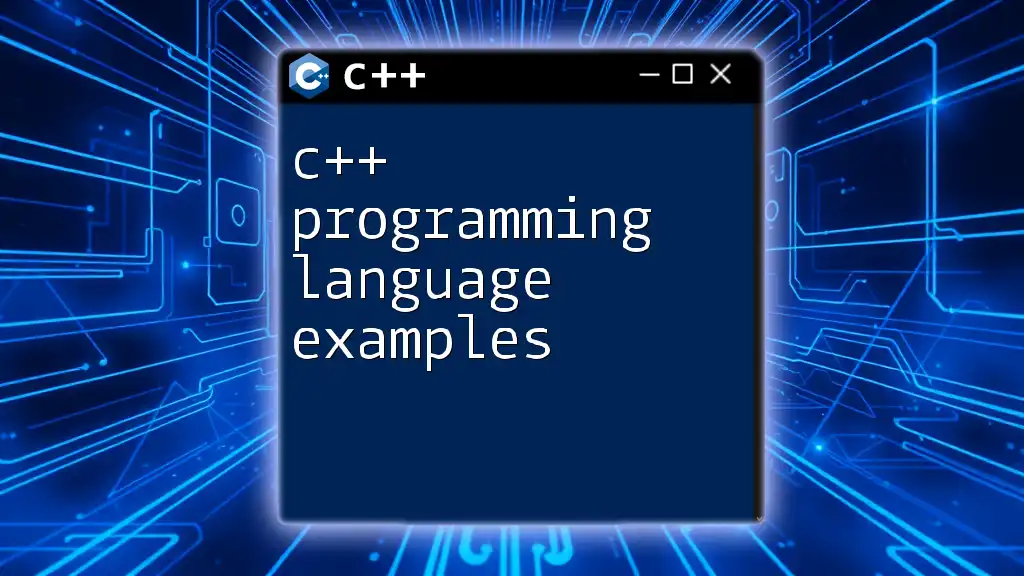
Why the C++ Programming Language Book is Essential for Learners
This book is indispensable for anyone looking to transition from a novice to an advanced programmer in C++. Stroustrup expertly bridges the gap between understanding the fundamentals and applying them in complex scenarios.
By mastering the concepts outlined in the book, readers understand the importance of C++ in various applications, including systems programming, game development, and performance-critical applications.
A profound understanding of C++ can open doors to numerous career opportunities in the tech industry, making this book a cornerstone of a programmer’s education.
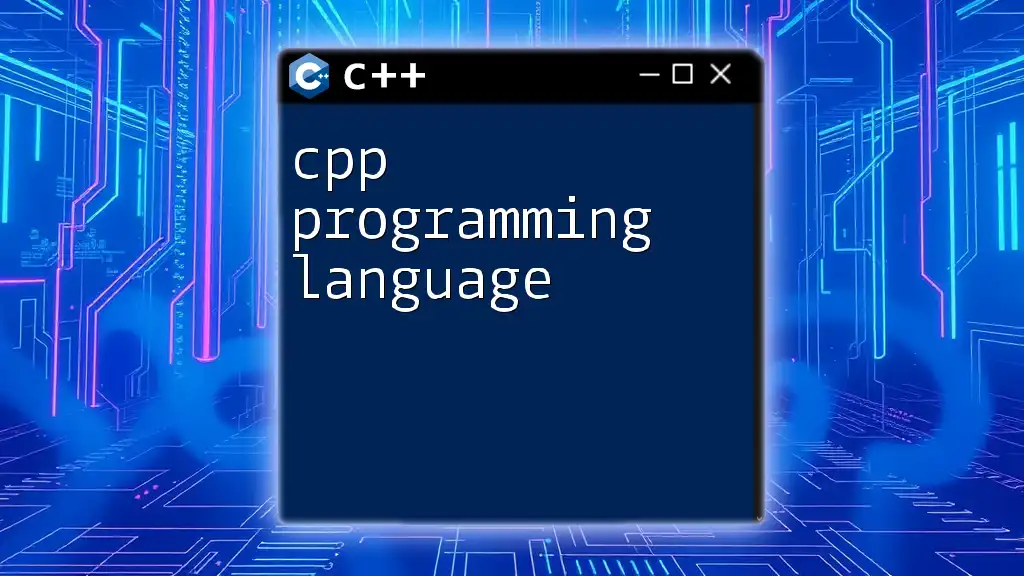
Supplemental Resources
In addition to The C++ Programming Language, readers are encouraged to explore other C++ books authored by Bjarne Stroustrup. Titles such as Programming: Principles and Practice Using C++ serve as excellent companions that enhance learning and provide alternative perspectives.
Moreover, utilizing online resources, such as forums, tutorials, and coding platforms like GitHub and Stack Overflow, can significantly complement the learning process. Engaging with these communities allows learners to seek help, share their projects, and foster collaborative learning.
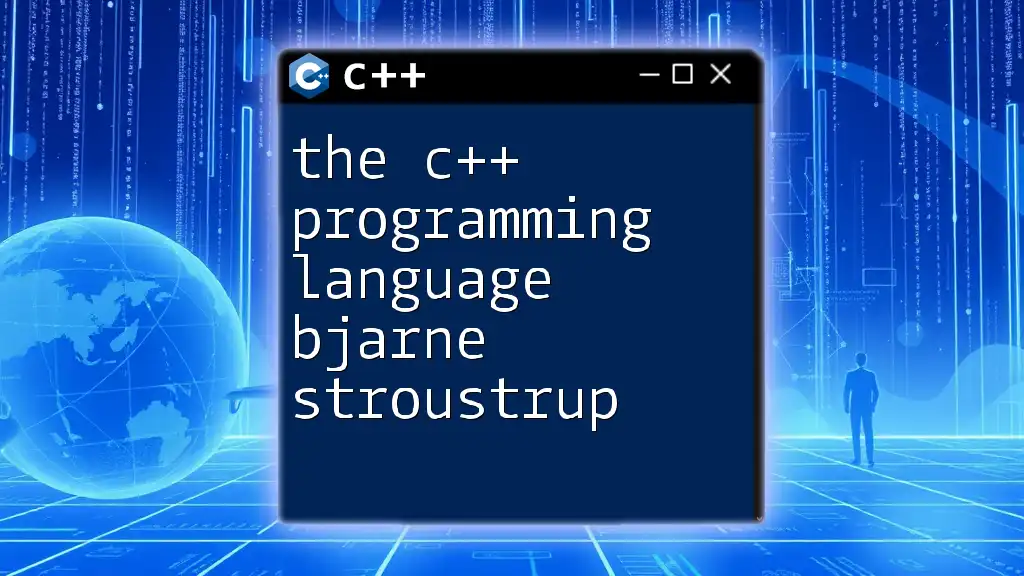
How to Use "The C++ Programming Language" Effectively
To maximize the benefits of Stroustrup's book, readers should incorporate effective study strategies.
- Active Note-taking: Write summaries of each chapter to reinforce learning.
- Practical Coding Exercises: Implement code examples and create small projects based on the concepts learned.
- Engage in Peer Discussions: Join study groups or online forums to discuss challenging topics and share insights.
Creating projects based on the examples in the book, such as developing a simple game or a basic database application, can provide hands-on experience that solidifies knowledge.
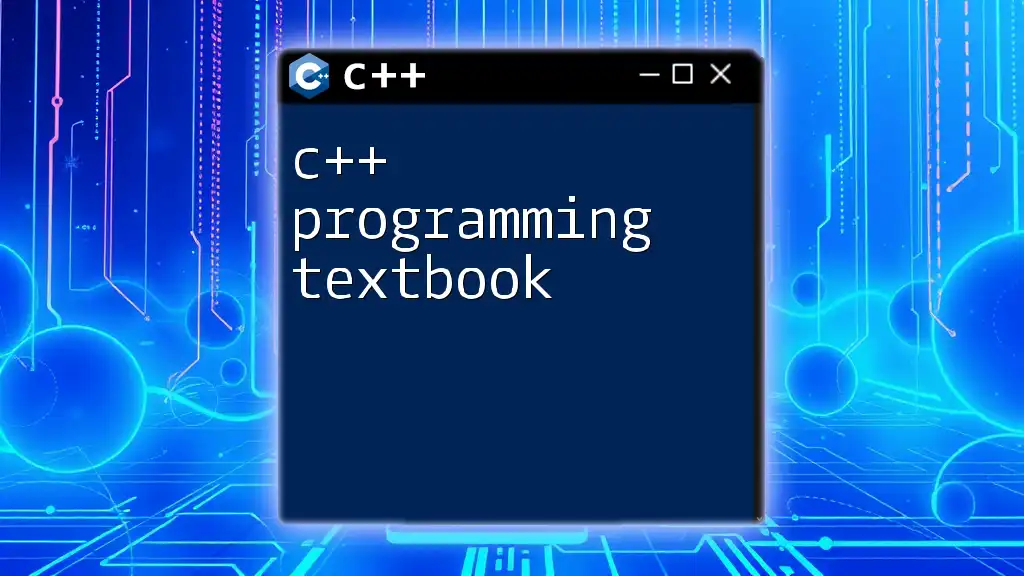
Real-world Applications of C++
C++ has a diverse range of applications across various fields. Industries such as finance, gaming, telecommunications, and scientific research rely heavily on C++ due to its performance efficiency and flexibility.
Real-world examples include major software like Adobe's Photoshop, the game engine Unreal Engine, and many operating systems that require high-performance computations. Understanding C++ not only equips you with programming skills but also connects you to the technology that drives many industries today.
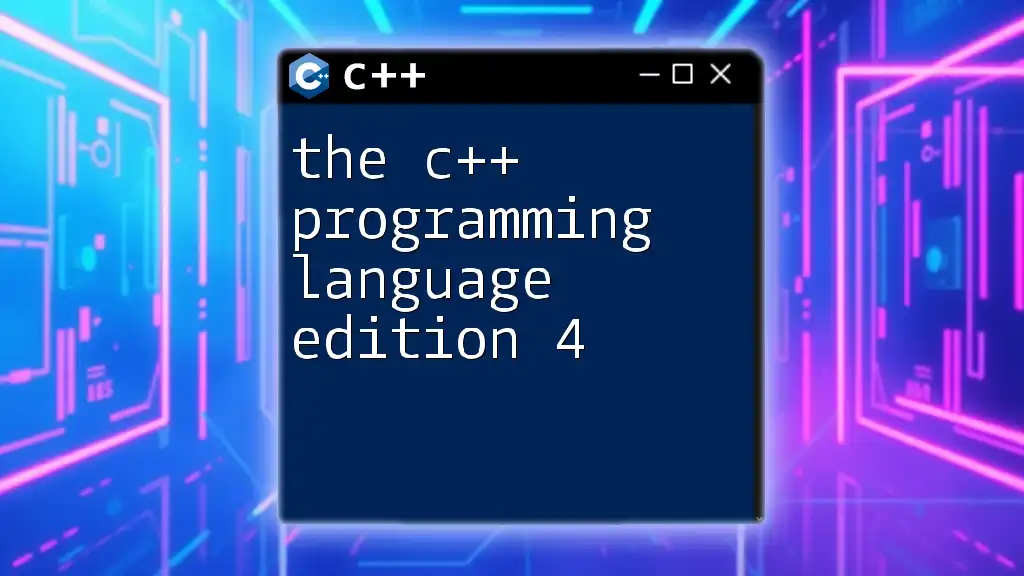
Conclusion
To sum up, The C++ Programming Language Book by Bjarne Stroustrup is an essential resource for anyone serious about mastering C++. Its comprehensive approach, paired with strong pedagogical techniques, ensures that readers gain a thorough understanding of the language.
By committing time and effort to this book, aspiring programmers will embark on a rewarding journey that leads to professional growth and opportunities.
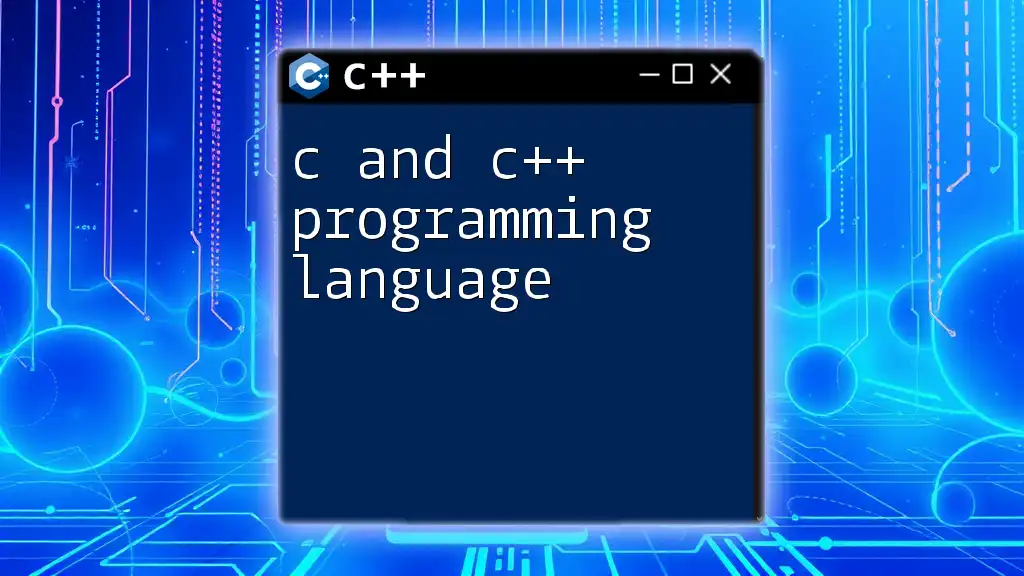
Call to Action
I invite you to share your experiences with The C++ Programming Language and discuss how it has impacted your journey in learning C++. Additionally, check out our company's offerings for concise and efficient learning methods tailored to help you master C++ commands with ease.

